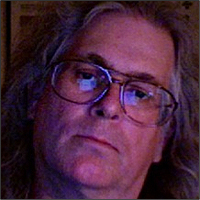Dr. Bill Martin
// Author, Musician & ProfessorDR. BILL MARTIN is an author, musician, and Professor of Philosophy at DePaul University in Chicago, Illinois. His book “Music Of Yes: Structure And Vision In Progressive Rock” (1996), “Listening To The Future: The Time Of Progressive Rock, 1968-1978” (1997), “Avant Rock: Experimental Music From The Beatles To Bjork” (2002), “Marxism And The Call Of The Future: Conversations On Ethics, History, And Politics” (2005), and “Ethical Marxism: The Categorical Imperative Of Liberation” (2008) are all available from Open Court Publishing. Dr. Bill Martin is also bass guitarist in the folk-rock band Porphyry, and several other music projects.
Website: www.depaul.edu
Photo: Dr. Bill Martin / DePaul University
Interview:
There are many connections between music and the human spirit, and yet I am a little wary of the terms “spiritual” and “spirituality”. Clearly music begins in the breath and the tactile connection to other living things, and furthermore forms are created with music that seem to exist outside of time or at least to exist persistently. John Coltrane, to take an example that is not one among others for me, seems to be channeling something very large, and he seems to speak to something that goes beyond human finitude, but I would say that he goes toward “human” infinitude, and that there is a specifically human and earthly form to the transcendence that his music embodies. Now, Coltrane had musical skills that are matched by very few, and this tremendous musical vocabulary played a big role in what he was able to do with music. Of course one also has to have something to say, the musical vocabulary by itself is not enough, and there are those with smaller vocabularies who also make significant contributions, and the contribution is always through a sense of “participation” in an enlargement of the human spirit, and an inspiration to create a world where this spirit can flourish. What is tricky is that sometimes this enlargement takes the form of a radical affirmation of the utopian possibilities of humanity, while at other times it takes the form of a radical negation of the present situation of humanity, in which people are alienated, reified, and debased. I wrote a book about the band Yes, and I see them as an example of radical affirmation, and I see the Sex Pistols as an example of radical negation. I’m a materialist, and even some kind of rather unorthodox Marxist, and so the sort of spirituality, and even “religious” perspective I am interested in is one that affirms the possibilities for human flourishing, and the co-flourishing of earthly creatures for that matter, and that looks toward the human future. I reject anything that negates this future, as I think much of what calls itself spirituality and religion does, as I think this sort of thing is the very opposite of an enlargement of the spirit. In the world today, we are in what might even be the biggest struggle of all time for the human spirit, and music is a part of this. While I think there is plenty of good music being made at present, I also think music is in a bit of a cul-de-sac right now, as is the human spirit, and that for the sake of both music and spirit, and of course the body as well, we will have to make some radical changes in the world.
“There are many connections between music and the human spirit… for the sake of both music and spirit, and of course the body as well, we will have to make some radical changes in the world.”
– Dr. Bill Martin, author of “Avant Rock: Experimental Music From The Beatles To Bjork”


